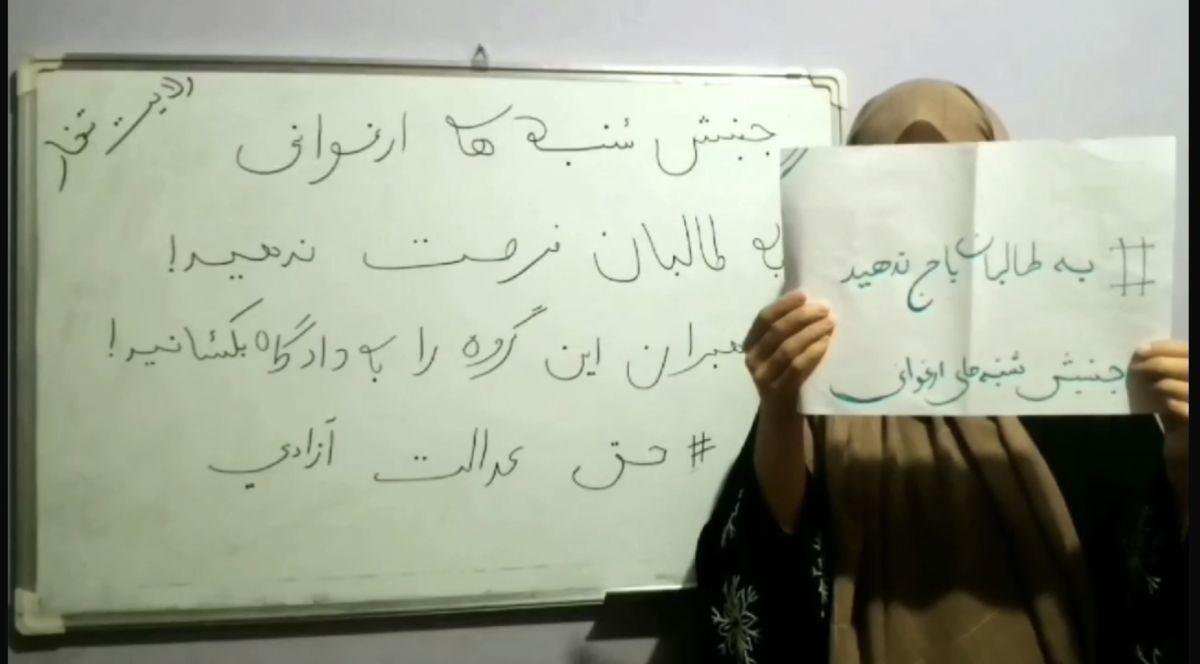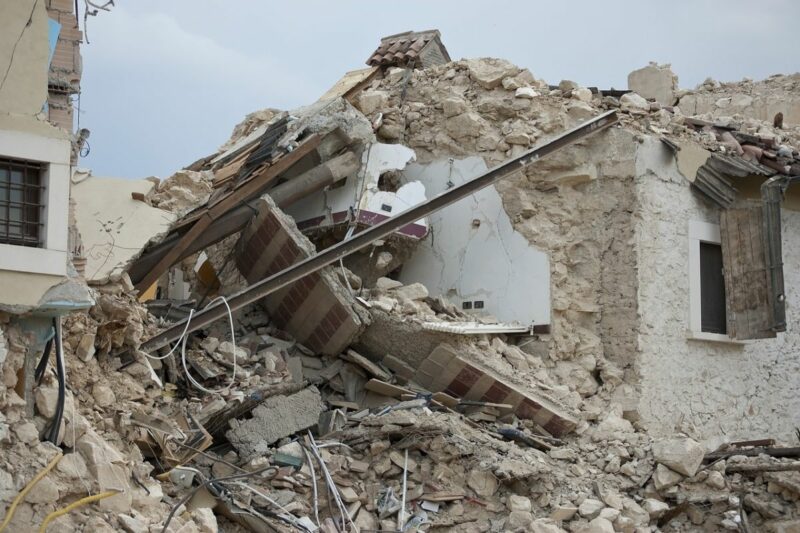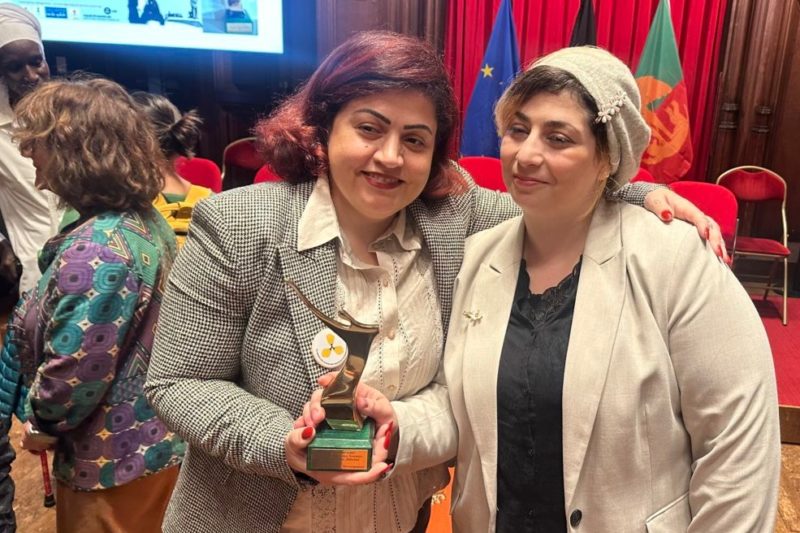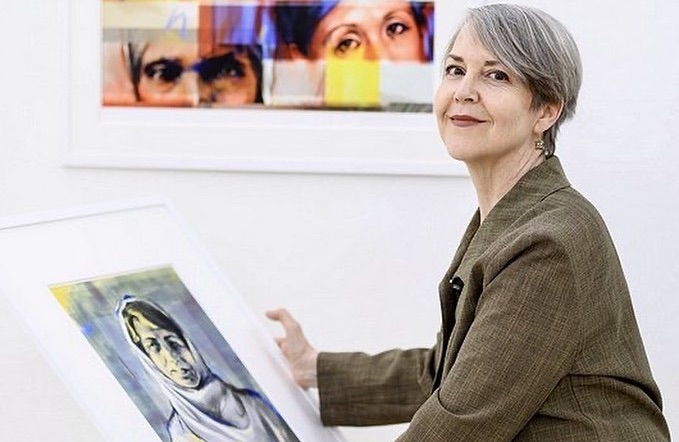Journalism in Afghanistan : « Every moment is filled with fear, every step with caution, as even the smallest mistake could cost us our lives » (1/6)

In these exclusive interviews, we have the chance to speak to Afghanistan’s brave journalists. These individuals, including women, have navigated extraordinary challenges in a profession that is vital for truth and transparency.
In recent years, Afghanistan’s media landscape has transformed dramatically following massive political and social upheavals. For these journalists, pursuing their passion for reporting has meant working under constant pressure, facing fear and uncertainty, and, above all, fighting for freedom of speech in an environment where voices, especially those of women, are systematically silenced.
Today, we delve into their personal stories, explore their journeys into journalism, and learn more about the grim realities of working in media under such challenging circumstances. Through these interviews, we hope to shed light on the critical yet perilous work these journalists continue to perform despite the odds stacked against them.
Please tell us a little about yourself and your life.
« My name is Sadaf Hamidi (allonym), a TV reporter at present in Afghanistan, and I am single. I live in Kabul with my family. I studied law and political science, specializing in administration and diplomacy, at Afghanistan University. Unfortunately, before I could complete my education, the recent developments in Afghanistan occurred and I was unable to return to university. For almost five years now, I’ve been working in journalism with various media outlets. »
How did you enter the world of journalism?
« When I first turned to journalism, my family was not supportive. They believed that Afghanistan society is highly traditional, and it would be very challenging and dangerous for a woman to enter such a profession. They were especially concerned about my safety, saying it would be too risky. However, my strong passion for journalism helped me to convince my family and gain their approval. »
How is working in media these days?
« Working in the media these days is extremely difficult and challenging. It’s incomparable to the past. We constantly live in fear. After they banned our faces, now they’ve silenced our voices as well. Anything could happen at any moment. The lack of access to accurate information, censorship of reports and news, and the severe restrictions on female journalists are just some of the daily challenges we face. These limitations have made our working environment very restrictive and tough. Comparing today to three years ago is impossible. Although I started my job before the fall of Kabul and didn’t have much experience, accessing information wasn’t as hard as it is today. We used to get information from various sources, and censorship wasn’t as bad. National and international media were active in Afghanistan, but today, that freedom no longer exists, and media outlets are collapsing one after the other. Few journalists and reporters are left, working amidst countless difficulties. »
« We were all shocked, we couldn’t believe it. »
Where were you on the day Kabul fell, and what did you witness?
« On the day Kabul fell, I was at work, preparing with my colleagues to cover the news. Although there were scattered reports, suddenly, one of our colleagues rushed into the newsroom and said, « They’ve taken Kabul. It’s over. » We were all shocked; we couldn’t believe it. Under our manager’s orders, we left the office as quickly as possible. The fear and stress were so overwhelming that we left behind some personal belongings in our rush to leave. How we got out is still unbelievable to me. We were told to return to our homes until further notice. Everyone was in a state of panic. Public transportation was scarce, and it was incredibly difficult to get home. I didn’t care how or where I could find a ride; I just wanted to reach home as soon as possible. I finally made it home, filled with fear and anxiety. The atmosphere at home, like in many other households, was full of fear and hopelessness. We all had daily routines, but suddenly, our lives felt insecure. For a while, we stayed at a relative’s house. But soon, due to fear and increasing anxiety, we had to find a different place to live and so we rented another house. As I heard about the president’s escape and some of my colleagues managing to leave the country, our hope for the future vanished. We, too, tried to leave Afghanistan, but I wasn’t able to. Those were difficult, dark days. Every day, I felt like I was drowning in darkness. I no longer wanted to live in fear and hiding, so after some time, I came out and eventually resumed work, though under much harsher conditions. Everything had changed. The office no longer felt the same. We only covered news or programmes that the Taliban wanted. As the breadwinner of my family, I had no choice but to accept their conditions and continue working. »
How do you select topics under these conditions?
« Selecting topics has become incredibly difficult. Before working on a topic, we have to think very carefully and coordinate with our managers. After passing through several approval stages, the topic is often either changed or even removed. We can’t easily interview anyone we want. We have to go through various steps before an interview, and even then, it’s uncertain whether we’ll be allowed to conduct it. Women are not allowed to attend many events, so we have to send our male colleagues instead. »
How have the last three years been for you?
« These three years have been incredibly disappointing, bitter, and hard. Numerous restrictions have been imposed on women in all aspects of life, from the workplace to universities, schools, and even parks. There is no place of safety and peace for us. What do you think life feels like in a country where half of the population is ignored and deprived of its most basic rights, like education? Every moment is filled with fear, and every step we take is with extreme caution because even the smallest word or action could cost us our lives. These three years have felt more like three centuries! »
Can you tell us about your salary and wages?
« A lot has changed regarding our salaries. First, our wages are not paid on time, and second, we work with very little pay, putting our hearts into it, and facing many challenges. Since I am responsible for supporting my family, I have no choice but to continue with this low pay. My family is in a poor economic situation, and even securing a piece of bread is not easy. »
« When I talk about it, I tremble and I am not feeling strong! »
Can you talk about the threats you’ve experienced?
« For the past three years, I’ve lived in fear and despair, and the shock of it all hasn’t left my mind. I’ve been threatened multiple times by various members of the Taliban. After the fall, when I resumed work, I faced threats several times for different reasons. Even though our clothing follows the Taliban’s demands – only our eyes are visible – I and even my family were threatened. There’s nowhere to file complaints, and no authority to support us. With no other options, I was forced to stay home for a while, but despite all the difficulties, I continued my work. I told myself, « I’ll either die or help my family and save them from this economic crisis that so many families in Afghanistan are facing. » This shock still lingers within me. When I talk about it, I tremble, and I no longer feel like the strong woman I used to be. I do everything with fear and caution, but to support my family, I’ve accepted this risk and continue working. »
What is it like working under the rule of the Islamic Emirate?
« Working under this regime is extremely difficult not only for me but for all women. There are so many restrictions on us. It’s as if we are soldiers trapped in a war. Yet, despite everything, we continue to inform the public. Even though the conditions are dire and our lives are constantly at risk, we must stand firm and fight against all this injustice. »
What do you expect from the international community?
« I request that the international community should at least support us women, who are working so hard under these tough conditions. The Taliban grow more brutal every day, and their restrictions are becoming stricter. The world must not forget us. We are at risk, both materially and in terms of our security. Afghanistan women are brave and can fight against these hardships, but only if the international community stands by us. For three years, I’ve been trying, but there is no way for me to breathe easily. Economic and security problems threaten my family’s life and safety. If something happens to us, I may no longer be able to resist and might think of suicide, because even the ability to breathe freely has been taken from me. »
« I hope the day comes when the women of Afghanistan can work freely. »
Are you satisfied with your working conditions?
« I am by no means satisfied with my working conditions. Our job is to deliver accurate and timely information, but the lack of access to proper information is one of our biggest challenges. The wide-reaching restrictions and the fear and anxiety in our work environment have made everything much harder for me. »
How do you see the future?
« The future seems uncertain, dark, and terrifying. I wake up every day filled with fear and anxiety, not knowing what will happen. Despite this, I and many other women remain standing and continue fighting to bring about change. I hope the day comes when the women of Afghanistan can work freely, without fear, and have their voices heard by the world. »




